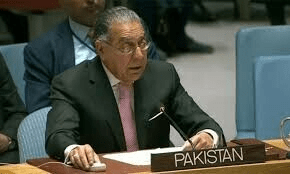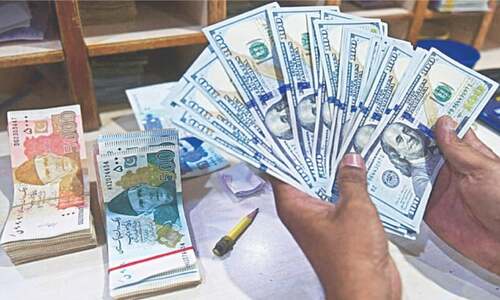
TUNIS: An exiled Islamic leader prepared to return to Tunisia, as thousands rallied in the country on Thursday to call for old regime politicians to be ousted after the fall of president Zine El Abidine Ben Ali.
There were protests in the capital Tunis as well as in Sidi Bouzid, a poor rural town in central Tunisia where rallies against Ben Ali's 23-year authoritarian regime began last month and grew into a national uprising.
“God is great! We will stay loyal the blood of the martyrs of the revolution!” the Sidi Bouzid protesters chanted, a reference to the dozens killed in a bloody crackdown by Ben Ali that failed to stem the revolt.
Tunisia's main trade union, the UGTT, which played a key role in the movement against Ben Ali, has refused to recognise the caretaker government installed to prepare for elections after the president fled on January 14.
The leadership of the UGTT was meeting Thursday to take a “final decision”on whether or not to accept proposed changes to the cabinet, which has been clouded by controversy because Ben Ali's ministers still hold key posts.
The reshuffle could see some holdovers from the Ben Ali cabinet replaced.
Meanwhile Rached Ghannouchi, the leader of the popular Ennahdha (Awakening) Islamic movement, prepared to return to Tunisia on Sunday after more than 20 years of forced exile, a spokesman for the movement in Paris told AFP.
“He will not return triumphantly, claiming a place in the government, but as a simple citizen,” said the spokesman, Houcine Jaziri.
Ghannouchi still officially has a life sentence hanging over him from 1992 for plotting against Ben Ali but in practice convicted exiles have been able to return freely in recent days.
He founded Ennahdha in 1981 on the model of the Muslim Brotherhood in Egypt and says it is now a moderate force similar to Turkey's Justice and Development Party (AKP) that will take part in elections.
The ripples of the Arab world's first popular revolt in recent history have been felt across the region, where difficult social and economic conditions have created widespread popular discontent against veteran regimes.
Thousands of Yemenis demonstrated in the capital on Thursday, calling on President Ali Abdullah Saleh to go. He has been in power since 1978.
Egypt, the Arab world's most populous nation, also braced for further unrest after protests in Cairo and Suez that left six people dead this week.












































Dear visitor, the comments section is undergoing an overhaul and will return soon.